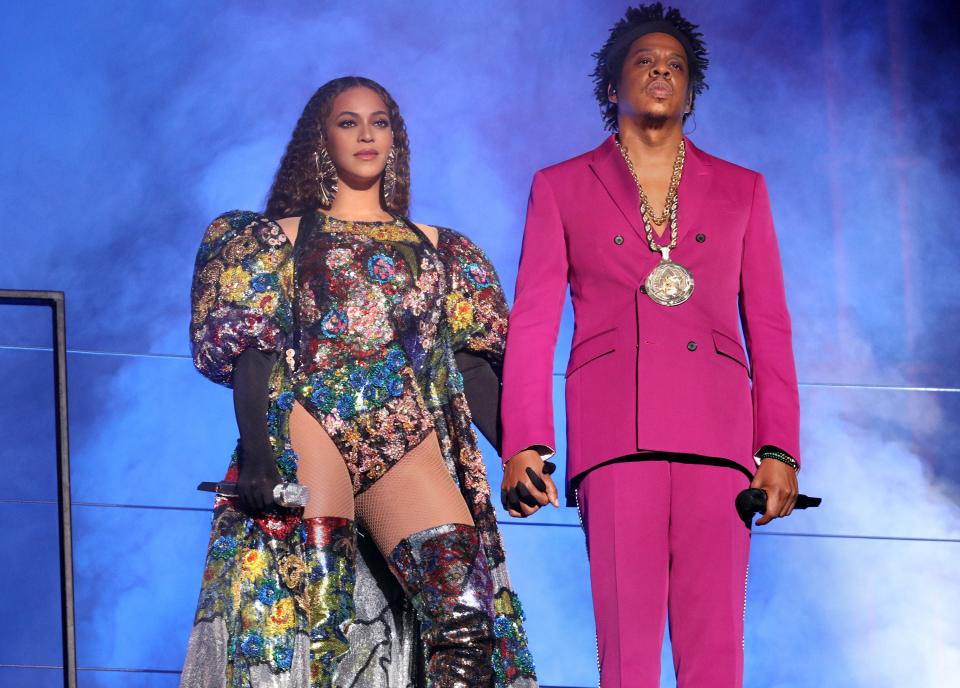'Struggle love' is toxic. Why are we romanticizing it?

When looking for love, many people want a partner who will stick with them through thick and thin: Someone who is loyal and stays through the hardships — even if it includes multiple breakups, constant fighting and infidelity.
But this relationship dynamic has another name: "struggle love."
Though the name is relatively new, the concept is not. Take, for instance, "Love and Hip Hop: Atlanta" stars Rasheeda and Kirk Frost, who have been praised for "still going strong" despite confronting issues ranging from infidelity to a child outside of the marriage. Or Hollywood's power couple Jay-Z and Beyoncé, who both sang about their troubled relationship amid the rapper's cheating scandal.
Even Khloé Kardashian, perhaps unintentionally, romanticized struggle love in a 2021 birthday post for Tristan Thompson. Her now-ex-boyfriend cheated on her numerous times and recently admitted to fathering a child with another woman while he was with Kardashian.

Kardashian wrote in March: "The ones that are meant to be are the ones who go through everything that is designed to tear them apart and they came out even stronger than they were before." The post garnered over 5 million likes.
Though these dynamics may be common, some say it's harmful to glamorize "struggle love."
"Being repeatedly lied to or cheated on isn't good for anyone, and selling it as, 'Look at us going through these hardships and getting stronger" is just a way to justify problematic behaviors," says Ramani Durvasula, a clinical psychologist and author of "Should I Stay or Should I Go?"
Tristan Thompson, Khloé Kardashian: Here's the problem with his public apology
'Affair fog': Why some people jeopardize healthy marriages for quick flames
What is 'struggle love' and why is it problematic?
It's normal for couples to navigate occasional challenges. But there's a difference between arguing about household chores or finances and dealing with betrayal.
According to Zakiya Knighten, a relationship strategist, struggle love assumes that "enduring hardships such as infidelity, outside children, emotional unavailability and abuse will prove loyalty."
"It's problematic because it sets the tone for hardship to be an acceptable prerequisite for love when in reality, the pain, embarrassment, shame and low self esteem that result is the total opposite of love," Knighten says.
Durvasula adds struggle love is a form of trauma bonding, or an attachment formed by repeated abuse or neglect.
"It's usually one person who is the victim of these problems caused by the other… so struggle love becomes a way to enable the more problematic person in the relationship to keep cheating or lying and conveniently frame it as, 'we go through so much together,'" she warns.
Are you dating a narcissist?: Watch out for these red flags.
Though anyone can experience struggle love, Knighten says as a woman of color she feels it's especially normalized for Black women, who also face the pressures to conform to the "strong Black woman" trope, or the stereotype that they should be able to withstand turmoil and pain.
"We're taught to be strong, to figure it out, do it yourself and that you can take it because you are strong. And when we enter these toxic relationships, it often feels familiar to what we're already enduring in life," Knighten says. "So we keep proving, keep repeating and keep hoping he’ll value our ability to figure it out and take the abuse."
'I’ve invested too much time': Reasons we stay in relationships longer than we should
We're not taught what healthy love is supposed to look like
Many people have experienced the red flags of dating: love-bombing, negging, and now, struggle love. But what people are less familiar with is what healthy love actually looks like, especially when pop culture fixates on "exciting," high conflict romances. (Think "Grease," and of course, Harley Quinn and The Joker).
Is it a deal breaker? Most common relationship-ending conflicts.
"In a healthy relationship, it should never just be one party consistently proving their love and loyalty," Knighten clarifies. "It's both parties employing forgiveness and compromise and trust to navigate difficult times together,"
However, experts remind that it's possible for relationships to be long lasting, fulfilling and healthy.
Negging: The popular flirting technique that hinges on emotional manipulation
"We're taught too much that relationships are about endurance, obligation, sacrifice, and hard work, but we're not told that relationships are a place you should grow, where you should not be lied to or controlled," Durvasula says.
"Betrayals of trust are not part of a healthy relationship. Kindness, shared values, support, honesty, trust — those are what make a relationship healthy and worthwhile."
Searching for love?: Here's what to look for in a partner.
What healthy love looks like: All relationships need couples counseling, experts say. Here's why.
This article originally appeared on USA TODAY: 'Struggle love': What is it and why do we romanticize it?

